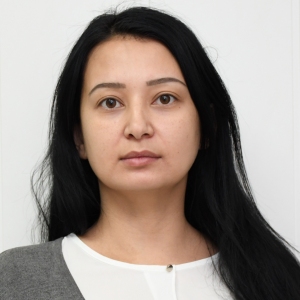Anti-Corruption Office
In accordance with the President's address to the Kazakh people, Kassym-Zhomart Tokayev noted that the state has faced the need for full implementation of the five institutional reforms and plans for the nation developed by Elbasy.
"One of the most important priorities of our society is to strengthen the fight against corruption" - stated in the Plan of the nation - 100 steps to implement five institutional reforms of Nursultan Nazarbayev.
Corruption - illegal use of persons occupying a responsible public office, persons authorized to perform public functions or persons equated to persons authorized to perform state functions, the officials of their official authority and the related opportunities in order to obtain or extract personal or indirectly property (immaterial) benefits and advantages for themselves or third parties, as well as bribery of such persons through the provision of goods and advantages.
The legal basis for combating corruption is the Constitution of the Republic of Kazakhstan, the Law of the Republic of Kazakhstan dated November 18, 2015 "On Combating Corruption", Decree of the President of the Republic of Kazakhstan from December 26, 2014 "On Anti-Corruption Strategy of the Republic of Kazakhstan for 2015-2025", other normative acts of the Republic of Kazakhstan.
To date, through the implementation of the modern anti-corruption policy is honesty ideology. As noted by the head of the Anti-Corruption Agency, Alik Shpekbayev, the conceptual basis for enhancing the effectiveness of anti-corruption at the current stage of development of society is determined ideology of integrity that would be adopted in the context of the formation of a high anti-corruption culture of citizens.
As part of this policy at the Kostanay State Pedagogical University of U.Sultangazina the committee of the Student Parliament has established, to implement which is prevention and combating corruption, as well as the formation of anti-corruption awareness among university students.
Also, the University has taken a number of measures to prevent corruption and improve the legal literacy of employees and students.
So, in January 2020, the University established the Office for combating corruption, which task is:
- formation of sustainable anti-corruption behavior and responsibility of the administration, teaching staff and University employees in the implementation of functional responsibilities;
- timely detection of corruption manifestations and prevention of their negative consequences;
- development of anti-corruption culture among University employees.
On January 28, 2020, the "anti-Corruption standard" was approved, which defines the actions and decisions of officials, employees, and staff of the University aimed at strict compliance with the established rules and prevention of corruption. The anti-corruption office has developed a special work plan for 2020, which is planned to conduct a number of activities aimed at creating sustainable anti-corruption behavior not only among employees and staff of the University but also among students of the University.





 About us
About us